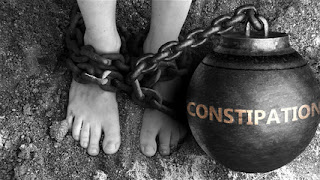Why Do We Need More Protein?
Where most people fail in their attempts to lose weight is a diet that does not include enough protein. The amount of protein in the diet is the single most important factor when it comes to increasing metabolism. Quality protein also helps you sustain muscle while the majority of the weight loss will be in the form fat. Notice I use the term “quality” protein.
Increasing your daily intake of protein will also improve muscle fitness, improve immunity, build HDL cholesterol (the good guy), improve antioxidant function and help stabilize blood sugars. All of these benefits result in accelerated weight loss.
The FDA guidelines for protein are far too low leaving room for increased carbohydrate intake, which is the perfect set up for diabetes and obesity. Eating two eggs (approximately 6 grams per egg) for breakfast has been shown to boost weight loss by 65%, compared to the same amount of calories from carbohydrates—such as a bagel. The minimal protein amount per day should be three-fourths your body weight in grams of protein per day. So let’s say you weigh 200 pounds, but should weigh 160 pounds, your goal for daily protein should be between 120-150 grams of protein per day (based on a 2000 calorie diet).
Initially, this seemed like a lot of protein when I was trying to figure out why I was struggling with an extra ten pounds. So let’s educate ourselves on the average amounts of protein in common foods, so we can build muscle and lose fat. In general, one ounce of meat or fish contains 7 grams of protein. A 3.5-ounce chicken breast is approximately 30 grams and a pork chop has 22 grams of protein. For those still doing dairy, most yogurts contain 8-12 grams, but cottage cheese wins for team dairy with 14 grams of protein per half cup. Most beans contain 7-10 grams per half cup, and 5-9 grams for ¼ cup of most nuts or seeds.
My concern with all this meat, fish and dairy is that it is acidic in the body. An acidic body is a host to degenerative conditions such as osteoporosis and inflammatory pain. An alkaline body, from a diet abundant in fresh fruits and vegetables, is resistant to illness. Cancer does not tolerate an alkaline environment. So how do we get enough protein without jeopardizing our health?
The quality of protein absolutely matters! I am a follower of the blood type diet so for the “O” population, whey is not your best choice for protein. Soy may be OK for the “A” blood type but not for an “O”. In order to avoid all the confusion and stay true to a healthy lifestyle, I usually recommend a protein powder that is a sprouted, raw and vegan. There are a few excellent choices available. Sunwarrior is rated as one of the best in quality and taste. One scoop provides 17 grams of protein and if you add some hemp or chia seed you can easily add 5 more grams to your shake. The raw vegan proteins are much easier to digest and contain all 9 essential amino acids along with non-essential amino acids. This type of protein is very safe for children as well as the elderly, much healthier than protein bars or shakes that usually contain far too much sugar. When you compare the profile of amino acids the raw vegan proteins are superior to all other protein powder forms and except for a few food exceptions (beef and fish). Although I am all in favor of food first, protein shakes are an excellent way to supplement the diet for weight loss or if you are a vegetarian.
Increasing your protein intake will increase your metabolism and energy levels while facilitating weight loss, specifically fat. Food cravings will diminish, as you will not be hungry. For those of you who are at the gym on a regular basis and not getting results, adding more protein could be the answer you have been waiting for.
Increasing your daily intake of protein will also improve muscle fitness, improve immunity, build HDL cholesterol (the good guy), improve antioxidant function and help stabilize blood sugars. All of these benefits result in accelerated weight loss.
The FDA guidelines for protein are far too low leaving room for increased carbohydrate intake, which is the perfect set up for diabetes and obesity. Eating two eggs (approximately 6 grams per egg) for breakfast has been shown to boost weight loss by 65%, compared to the same amount of calories from carbohydrates—such as a bagel. The minimal protein amount per day should be three-fourths your body weight in grams of protein per day. So let’s say you weigh 200 pounds, but should weigh 160 pounds, your goal for daily protein should be between 120-150 grams of protein per day (based on a 2000 calorie diet).
Initially, this seemed like a lot of protein when I was trying to figure out why I was struggling with an extra ten pounds. So let’s educate ourselves on the average amounts of protein in common foods, so we can build muscle and lose fat. In general, one ounce of meat or fish contains 7 grams of protein. A 3.5-ounce chicken breast is approximately 30 grams and a pork chop has 22 grams of protein. For those still doing dairy, most yogurts contain 8-12 grams, but cottage cheese wins for team dairy with 14 grams of protein per half cup. Most beans contain 7-10 grams per half cup, and 5-9 grams for ¼ cup of most nuts or seeds.
My concern with all this meat, fish and dairy is that it is acidic in the body. An acidic body is a host to degenerative conditions such as osteoporosis and inflammatory pain. An alkaline body, from a diet abundant in fresh fruits and vegetables, is resistant to illness. Cancer does not tolerate an alkaline environment. So how do we get enough protein without jeopardizing our health?
The quality of protein absolutely matters! I am a follower of the blood type diet so for the “O” population, whey is not your best choice for protein. Soy may be OK for the “A” blood type but not for an “O”. In order to avoid all the confusion and stay true to a healthy lifestyle, I usually recommend a protein powder that is a sprouted, raw and vegan. There are a few excellent choices available. Sunwarrior is rated as one of the best in quality and taste. One scoop provides 17 grams of protein and if you add some hemp or chia seed you can easily add 5 more grams to your shake. The raw vegan proteins are much easier to digest and contain all 9 essential amino acids along with non-essential amino acids. This type of protein is very safe for children as well as the elderly, much healthier than protein bars or shakes that usually contain far too much sugar. When you compare the profile of amino acids the raw vegan proteins are superior to all other protein powder forms and except for a few food exceptions (beef and fish). Although I am all in favor of food first, protein shakes are an excellent way to supplement the diet for weight loss or if you are a vegetarian.
Increasing your protein intake will increase your metabolism and energy levels while facilitating weight loss, specifically fat. Food cravings will diminish, as you will not be hungry. For those of you who are at the gym on a regular basis and not getting results, adding more protein could be the answer you have been waiting for.



Comments
Post a Comment